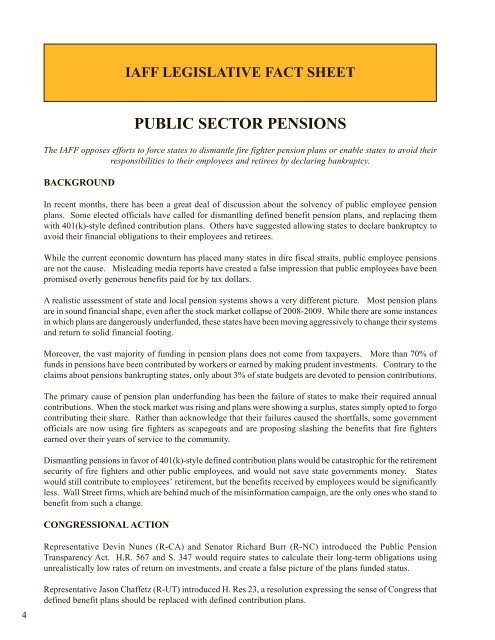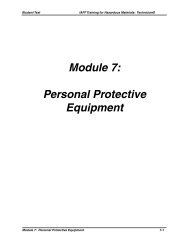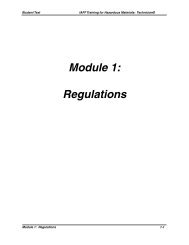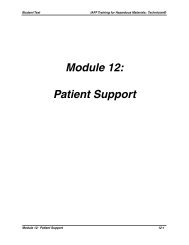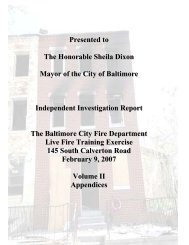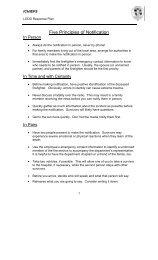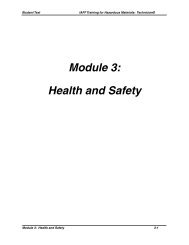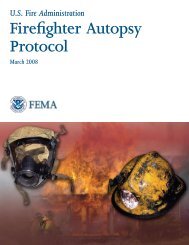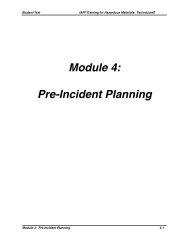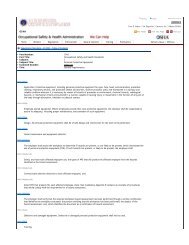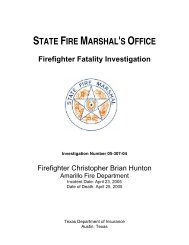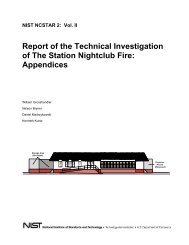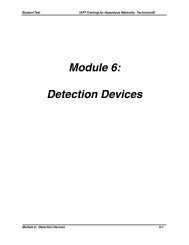2011 Fire Fighters Issues Book.pmd - IAFF
2011 Fire Fighters Issues Book.pmd - IAFF
2011 Fire Fighters Issues Book.pmd - IAFF
Create successful ePaper yourself
Turn your PDF publications into a flip-book with our unique Google optimized e-Paper software.
<strong>IAFF</strong> LEGISLATIVE FACT SHEET<br />
PUBLIC SECTOR PENSIONS<br />
The <strong>IAFF</strong> opposes efforts to force states to dismantle fire fighter pension plans or enable states to avoid their<br />
responsibilities to their employees and retirees by declaring bankruptcy.<br />
BACKGROUND<br />
In recent months, there has been a great deal of discussion about the solvency of public employee pension<br />
plans. Some elected officials have called for dismantling defined benefit pension plans, and replacing them<br />
with 401(k)-style defined contribution plans. Others have suggested allowing states to declare bankruptcy to<br />
avoid their financial obligations to their employees and retirees.<br />
While the current economic downturn has placed many states in dire fiscal straits, public employee pensions<br />
are not the cause. Misleading media reports have created a false impression that public employees have been<br />
promised overly generous benefits paid for by tax dollars.<br />
A realistic assessment of state and local pension systems shows a very different picture. Most pension plans<br />
are in sound financial shape, even after the stock market collapse of 2008-2009. While there are some instances<br />
in which plans are dangerously underfunded, these states have been moving aggressively to change their systems<br />
and return to solid financial footing.<br />
Moreover, the vast majority of funding in pension plans does not come from taxpayers. More than 70% of<br />
funds in pensions have been contributed by workers or earned by making prudent investments. Contrary to the<br />
claims about pensions bankrupting states, only about 3% of state budgets are devoted to pension contributions.<br />
The primary cause of pension plan underfunding has been the failure of states to make their required annual<br />
contributions. When the stock market was rising and plans were showing a surplus, states simply opted to forgo<br />
contributing their share. Rather than acknowledge that their failures caused the shortfalls, some government<br />
officials are now using fire fighters as scapegoats and are proposing slashing the benefits that fire fighters<br />
earned over their years of service to the community.<br />
Dismantling pensions in favor of 401(k)-style defined contribution plans would be catastrophic for the retirement<br />
security of fire fighters and other public employees, and would not save state governments money. States<br />
would still contribute to employees’ retirement, but the benefits received by employees would be significantly<br />
less. Wall Street firms, which are behind much of the misinformation campaign, are the only ones who stand to<br />
benefit from such a change.<br />
CONGRESSIONAL ACTION<br />
Representative Devin Nunes (R-CA) and Senator Richard Burr (R-NC) introduced the Public Pension<br />
Transparency Act. H.R. 567 and S. 347 would require states to calculate their long-term obligations using<br />
unrealistically low rates of return on investments, and create a false picture of the plans funded status.<br />
4<br />
Representative Jason Chaffetz (R-UT) introduced H. Res 23, a resolution expressing the sense of Congress that<br />
defined benefit plans should be replaced with defined contribution plans.


